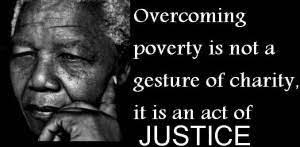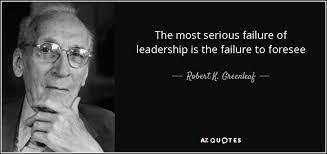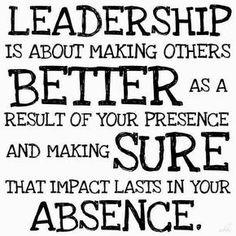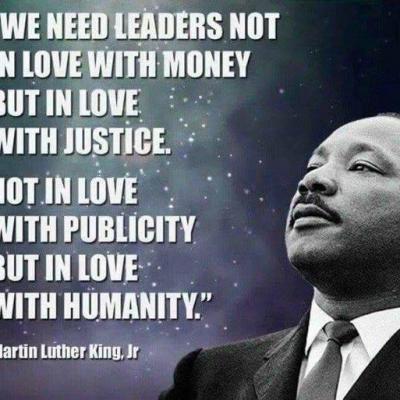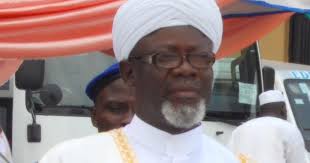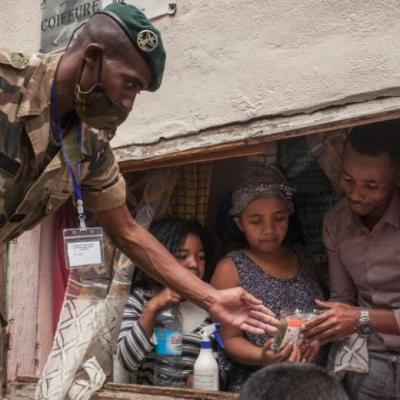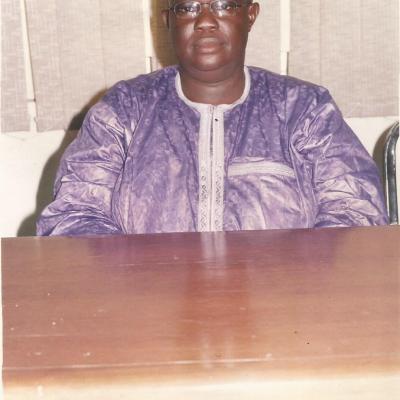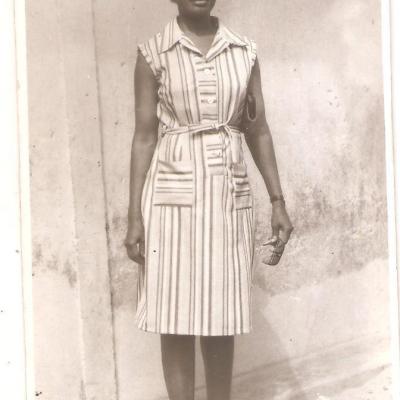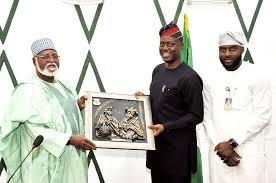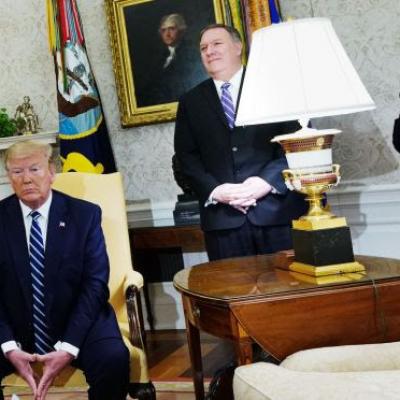Leadership
-
Misplaced Priorities
- By solomon2day
- On 06/06/2023
- In Solomon's Column
 The lack of domestic purchasing power of citizens has been a set back for economically backward countries of the world.
The lack of domestic purchasing power of citizens has been a set back for economically backward countries of the world.
Monetary expansion in these countries has resulted in the inflation of prices of goods and services to the detriment of the people.
Indeed, in a number of countries, the great majority who are poor are manipulated to focus on smart phones and related products as urgent priorities even as they wallow in abject poverty.
Sadly, these products are not locally produced, but imported from economically viable countries.
Of worry, is the fact that the real income of the workforce is side by side to the subsistence level-with little or no hope for a raise.
The unimpressive income of the workforce has ensured that productivity remains at the lowest ebb, while redundancy, inefficiency and mdeciority take the center stage.
Curiously, the prevailing hunger and poverty in a given geographical location not only inhibits the inducement to invest but also discourages economic progress.
Nigeria is made up of an estimated land mass of 923,773km2, including varied vegetation and soil types suitable for a variety of agricultural initiatives.
Solid minerals, namely coal, coumbite, liginite, talc, marble, baryte, gypsum, iron, crude oil, among others abound in the country.
The mentioned resources ought to be a concrete foundation for development.
The improvement in the well being of citizens is usually the ultimate objective of visionary leadership all over the world. In addition, this is achievable by formulating an economic policy that would ensure unhindered access to the basic needs of life by citizens.
There is no doubt that today's political office holders ought to put in place policies that would have an immediate, visible and positive impact on the quality of lives of millions of impoverished Nigerians.
The Desperate and Wicked Heart
Well wishers, supporters, admirers and loyalists of political office holders are indeed, having a field day in Molusi, Olorunsogo, Onafuwa Solanke, Oyegbami, Oshodi, Aluko and Felele communities in Ibadan, Oyo state among several other communities in Nigeria. The situation is disturbing even as lawlessness and criminality persists.
Indeed, long before now, pick pocketing has become a means to an end in different parts of Nigeria, with no convincing effort from Those-in-Authority to combat the ugly trend.The hearts of those who insist that they are representatives of the people have become seemingly desperately wicked. -
The Vicious Circle of Poverty
- By solomon2day
- On 29/05/2023
- In Solomon's Column
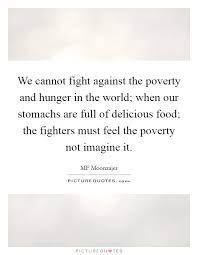 Infrastructure is a necessity for development but may not be a condition for advancement.
Infrastructure is a necessity for development but may not be a condition for advancement.Skilled labor, moral and social outlook, political situation and historical narratives all play critical roles in economic development.
Indeed, the store of technical knowledge is not at par with economic resources available at a given point in time, while corruption remains a major impediment to development.
Various conditions determine the inducement to invest, but in most cases, developing countries rely on a make-believe and cosmetic approach.
Unfortunately, this has not been successful.
The potential to develop is guided by the ability and willingness to save.
Sadly, the capacity to save in developing countries is low due to low real income, which in turn is as a result of low productivity and the visible absence of the enablers of development. Some countries remain in the vicious circle of poverty not because of the lack of natural resources and a conducive environment, but because of corruption, greed and self-centeredness among those-in-authority.
However, redundancy and ignorance are challenges for the workforce in focus.
-
Learning from Living Examples
- By solomon2day
- On 28/06/2022
- In Solomon's Column
 Nigerians have persistently failed to learn from history.
Nigerians have persistently failed to learn from history.
There are a number of living examples who attained higher heights through the efforts of others. And in the process of consolidation, side tracked all those who were responsible for their ascendency.Read this-Helplessness in the Face of Dirt
The living examples have now become part of history.
Sadly, the present occupiers of the higher heights have continually introduced artificial crises to justify the billions of Naira that have been frittered away under the guise of securing lives and property, on a monthly basis.-Legalizing Crime and Criminality
Contracts for the supply of vehicles were facilitated without due process, while such vehicles are not worth the value attached to them. Who are the contractors? Profit from this
The poor state of infrastructure, particularly roads, contradicts the humongous amount reported to have been committed to fixing the roads. In addition, hunger, poverty and the high rate of unemployment are now policies the government at all levels apply in governance.-Landlords and Tenants Associations, Crime and Criminality
Several shuttles abroad are yet to attract meaningful development. However, such trips have depleted the dwindling funds in the treasuries at all levels of government.
Indeed, questionable spending and bloated figures on contracts awarded litter balance sheets, just as the high debt profile has now become a source of concern and worry for all and sundry.-Law Enforcement: The Reactionary Approach -Government Workers-A Subject of Debate
-
Insecurity is a Reflection of the Incompetence and Helplessness of Our Leaders-Ex-Officio TUC
- By solomon2day
- On 17/02/2022
- In News
 The unabating and worrisome insecurity in several parts of Nigeria is a reflection of the incompetence and helplessness of leaders at all levels of government in Nigeria.
The unabating and worrisome insecurity in several parts of Nigeria is a reflection of the incompetence and helplessness of leaders at all levels of government in Nigeria.
This assertion was made by an Ex-Officio of the Oyo State Council of the Trade Union Congress(TUC), Who is also a former chairman of the union in the state, Comrade Andrew Emelieze.
'The kidnappings, killings(for ritual purposes inclusive), bloodletting, and other violent crimes have all established the fact that Those-in-Charge of government at all levels are incompetent and helpless. They are either overwhelmed, helpless in handling the worrisome security situation, or covertly supporting the ugly situation. Man proposes God disposes,'' Comrade Emelieze noted.Read-Legalizing Crime and Criminality -Landlords and Tenants Associations, Crime and Criminality
-Law Enforcement: The Reactionary Approach -Government Workers-A Subject of Debate
-
Avoiding Succession Pitfalls
- By solomon2day
- On 30/08/2021
- In Solomon's Column
 William the Conqueror and Henry 1 of England were leaders whose authorities were to a large extent personal and not in any way attributable to the dynamic structure of the Government.
William the Conqueror and Henry 1 of England were leaders whose authorities were to a large extent personal and not in any way attributable to the dynamic structure of the Government.
Both of them had the extraordinary force of character with despotic tendencies.
Interestingly, when Stephen, a man of feeble traits, succeeded Henry, civil war broke out. This was as a result of a succession dispute, which snowballed into a confusion of an unimaginable dimension culminating in the termination of the royal court. After the demise of Henry 1, the Government drifted into anarchy.
However, the Royal court was restored and extended by Henry 11.
Henry 11 was the son of Geoffery Plantagenet, Count of Anjou, and Eleanor of Aquitaine.
His personality impressed those of his time, while his friends and enemies were of the consensus that he was a man of ways, means, and passions beyond the imagination of average men.
Henry 11 had an eye for details of law and administration and indeed relished legal argument even as he sat in judgment with delight.
Personalities with similar behavioral attributes abound in the countries of Africa today, Nigeria inclusive.
The unabating crimes-killings, kidnappings(for ritual purposes inclusive), and armed robbery by criminals, in addition to the sustained underdevelopment, are all pointers to the fact that the leadership has veered off the road as the country makes preparations for the diamond jubilee celebrations.
It is now the duty of the people to identify such personalities and ensure all is done to avoid the pitfalls of the Norma period. -
May 29 : Nigerians Expect their Elected Representatives to Correct the Defective Aspects of Governance-Prof. Olagoke
- By solomon2day
- On 27/05/2019
- In The People Talk
As elected representatives of the people prepare for another dispensation, beginning from May 29, 2019, Nigerians at home and abroad are hopeful that the new dispensation will bring in its stride , good governance and development.
However, presently, despondency, hopelessness and disillusion characterize the state of well being of most Nigerians.
In this interview, the Founder, Spiritual Head and Grand Imam of Shafaudeen-in-Islam Worldwide, Prof. Sabitu Olagoke opines that the unenviable past records of the country ought to inspire the elected representatives who will steer the ship of governance from May 29, to make up for the losses and ensure that the country celebrates its 60th independence anniversary. Excerpts :
A new dispensation shall commence on May 29, 2019, what is your message to Nigerians ?
Nigeria will witness a civilian to civilian transition, come ,May 291, 2019, that will move us into self-realization for the purpose of effective necessary changes for governance to have a positive impact, most especially in the areas of revisiting the welfare of the people.
However, we must be mindful of the fact that the elected representatives are still Nigerians, who are products of the bad past.
Worse still, the same hostile environment is still going to be confronted as barriers to development, unless they are very much determined.
Lee Kuan Yew’s experience in the history of Singapore’s development could be of help to our political office holders.
His travelling to many other nations including countries in Africa, to seek for the way out of his country’s economic challenges and the competency needs of the managers of the state, and the harnessing power of resources, coupled with the management classification of the people to work with, like the prime movers, the lackadaisical and the rebellious groups, who the leader needs to identify, to work on them, to enable acceptable values and positive mindset, to be able to move Singapore into the class of development.
On getting home, Yew reached an agreement with the lords of his political party and the people of his country, through a perfected agenda for development, with a good counsel on zero tolerance for corruption, indiscipline and impunity.
Having gained the confidence of his people, he became a role model on transparency and accountability, for others to make sacrifices.
Today in Nigeria, Political Parties are directed by their godfathers and the destiny of elected leaders are usually remote controlled, making many of them to deviate from the normal path of the promises made during their campaigns.
Worse still, appointment of people into sensitive positions of power usually lack merit, credibility, transparency and accountability, for the state Governors, the President and the people to assess their performances while in office. This gives them every opportunity to engage in corrupt practices, with all impunity, to the detriment of the peoples’ welfare, community and national development.
There is the need for the timely supervision of Commissioners and Minsters activities, to assess their performances.
Besides this, Nigerians generally, have no excuses not to perform well in office because the Swearing-in ceremony shall take place during the Ramadan fast period, which is expected to have provided and instilled the fear of God for due process in transactions, as an enabling environment to allow campaign promises tally with service delivery.
One would expect that Nigeria at 59 should look backwards and regret the failure in governance by the Military and their Civilian counterparts.
Most of our political office holders today, were either born during independence or after.
Unfortunately, these crop of people by omission, commission or inaction had in one way or the other soiled their hands in corruption, which were trailed with poor records of performances, most especially those who had always been in government or born before 1960, Nigeria’s independence day.
If only they can reflect back that till date, Nigeria’s development profile is neither bequeath able nor sustainable, their focus should therefore be on how to work assiduously to deliver, to make up for the losses so far and to meaningfully celebrate Nigeria at 60, when the time comes.
Using SWOT analysis, Nigeria still stands at the advantage of been potentially sound, in terms of the endowed natural resources.
Even when you consider the capacity building needs in terms of human resources, with globalization in mind, our high number of Universities, other components of tertiary institutions, give us the hope of having the ability to rise in terms of development, without necessarily relying on foreign experts.
The professionals in all fields of human endeavor are equally many, waiting for challenges of government patronage and societal acceptance.
Obviously, our areas of strength and opportunities are versed, while the challenges, weaknesses and threats must be faced squarely by the new government, to correct the lapses.
These are the expectation of all Nigerians, whose mandate, entrust power onto the elected and indirectly onto the appointed representatives.
Politicians must embrace the culture of internal party Democracy and the opposition must equally refrain from hate speech and personality attack, but dwell more on critiquing issue based values and desist from criticizing that which is more judgmental than proferring solutions.
The structure of Democracy is such that the Executive is always put in check, with respect to its excesses, by the Legislative arm, which is expected to regulate and midwife people oriented legislation.
The Judiciary must see Nigeria as a project that must be free of corruption.
The Ministries, Departments and Agencies must equally be alive to their responsibilities of providing a safe and secure environment for development through ethical practice that is based on global best practices.
The Houses of God through its population target theory and proliferation of sects must be checked and controlled by making them to be scripture compliant, in order that this sector would be able to produce reliable and dependable adherents, who will be raw materials for governance at all levels.
Management of the House of God must be based on piety for the religious sectors to provide good aura of divinity for necessary divine intervention in the affairs of Nigerians, most especially through their governments.
Nigerians must be made to uphold the culture of innovation, skill acquisition and productivity, we must equally see ourselves as stakeholders in ensuring that government performs its duty as expected, whistle blowing, impunity and corruption, while ensuring that errant violators are brought to book as deterrent to others, while preventing re-occurrence.
What should be of primary concern now, is that all hands must be on deck to see Nigeria as a project and to manage Nigeria in such a way as to achieve in the areas of bequeathable legacy, for our children to enjoy the dividends of sustainable development.
-
Nigerians No Longer Trust Their Leaders-Prof Olagoke
- By solomon2day
- On 16/04/2019
- In Special Report
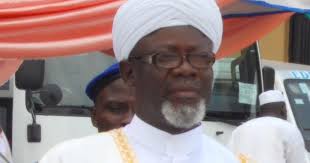 Banditry, killings, kidnapping, armed robbery and violence now characterize daily living in different parts of Nigeria.
Banditry, killings, kidnapping, armed robbery and violence now characterize daily living in different parts of Nigeria.The feeble response by government has further aggravated the almost helpless situation.
The impression Nigerians have, is that the present administration does not have the know how to restore normalcy.
In this interview, the Founder, Spiritual Head and Grand Imam of Shafaudeen-in-Islam Worldwide, Prof. Sabitu Olagoke says Nigerians no longer trust their leaders who neither transparent nor accountable, which has resulted in the clamour for secession. Excerpts :
Banditry, killings, kidnapping, armed robbery and violence are the signposts of living in Nigeria, what do you think is the way out ?
Naturally, in a system of mankind, poverty takes the most percentage of what can fuel crisis and violence.
This is why the major challenges to be managed by government, revolve on the provision of basic amenities and functional infrastructure. As regards this, successive governments have failed.
For example the Boko Haram issue would have been a thing of the past, if not for the accumulated destitution among most of the youth in the Northern part of the country.
 The same fundamental enabling environment for violence and impatience cuts across all states of the federation, with varying degrees of poverty, gaining prominence.
The same fundamental enabling environment for violence and impatience cuts across all states of the federation, with varying degrees of poverty, gaining prominence.Secondly, since the inception of democracy, we have been running governments that have been insensitive to the peoples' plight, contrary to the dictates of section 16 of the 1999 amended constitution, which harps on the responsibilities of government to the welfare of Nigerians.
Apart from this, our political management has assumed an extreme dimension of ethnic and tribal coloration, where nepotism is the basis for getting jobs and contracts.
When government fails to manage the issue of corruption effectively, the wealth of the land goes into the hands of the privileged few in positions of power.
Unfortunately, the mitigation measure on ground, rests with our security agencies, which are being weighed down by lack of motivation.
 Furthermore, capacity building in the areas of training with modern equipment is equally lacking, which would have enabled them to stem the ugly tide of insecurity.
Furthermore, capacity building in the areas of training with modern equipment is equally lacking, which would have enabled them to stem the ugly tide of insecurity.The world standard of work ratio of all the security agencies to the population, they are supposed to serve, is extremely low.
This is why the clamor for state police may hold water, although with reservations.
Are we civilized enough to the level of upholding professional ethics in this respect ?
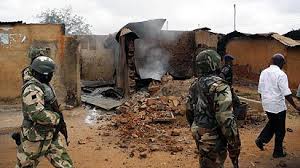 Certainly, the answer is no, because all tiers of government in Nigeria are still vindictive on the opposition, hence the security agencies may be manipulated for selfish purposes by any government in power. We need to work on this area of civility challenge.
Certainly, the answer is no, because all tiers of government in Nigeria are still vindictive on the opposition, hence the security agencies may be manipulated for selfish purposes by any government in power. We need to work on this area of civility challenge.Dearth of adequate personnel and professional training requirements, need to be addressed with utmost urgency to avoid wasting the lives of the few that are ready to stop further bloodshed that would have been found to be highly unwarranted.
Running an inclusive government, rather than the winner takes all syndrome, will not only promote amity and memorandum of understanding, between the President and the governments at the state and local levels, but will also allow for timely intervention to quell riots or any acts of violence.
Nigeria is presently enjoying, a graveyard peace.
The people do not trust their leaders who neither transparent nor accountable, this has caused a lot of disaffection to the point of hiding under restructuring motives to achieve secessionist agenda.
Most of the regions are waiting for Nnamdi Kanu to achieve his aim, for others to say '' to thy tents Oh Israel''.
With the foregoing as the situation on ground, Nigerians should naturally expect pockets of killings and anti-societal acts inimical to any reasonable development.
However, making the country ungovernable for the government in power, is never a solution, but an act of retrogression, that all Nigerians must condemn.
Nigeria ought to learn from the civilized way the issue of BREXIT is being handled.
Dialogue is the best option to adopt to further the peaceful co-existence that still keeps the country together.
The service chiefs and the Professors of conflict resolution, would continue to be indicted for incompetence and lack of patriotism, if the the President could not be rightly advised to do the needful, with all sincerity of purpose.
What is government doing with the reported $1 Billion it collected for the purchase of arms and equipment for the military ?
What are the security agencies doing with the reported N 350 million worth of arms and ammunition intercepted at the nations' borders ?
We must know fully well that a cracked wall, would ever harbour reptiles, to the detriment of the people in the house.
Inter-religious and ethnic disaffection been promoted by the President Muhammadu Buhari led government must stop, because government needs the support of all Nigerians.



